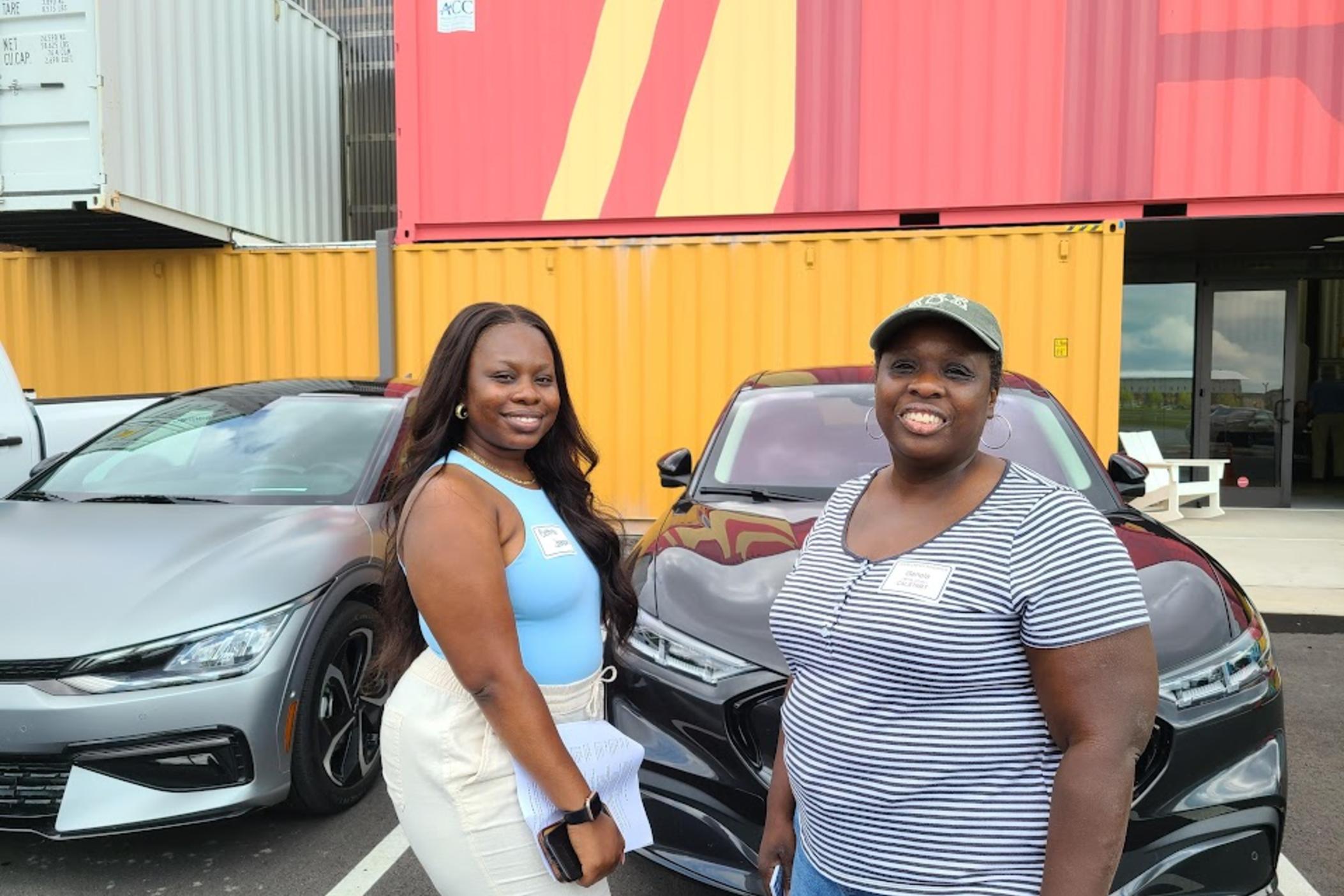Section Branding
Header Content
Federal funds spark new hope for Georgia’s electric car buyers
Primary Content
President Joe Biden recently signed the Inflation Act creating federal tax credits for qualifying electric vehicle purchases. Georgia’s state tax credit expired in 2015, but many consumers are still looking to transition away from gas vehicles. GPB’s Amanda Andrews takes us to the Clean Energy Roadshow to hear what the future may hold for Georgia consumers.
——
The Clean Energy Roadshow makes its way across the state each year, sharing the latest alternative fuel technology and displaying new vehicles. For consumers looking to transition to an electric vehicle, the roadshow provides a hands-on experience.
That experience drew consumers like Bettina Johnson to the roadshow stop in Lafayette. She’s in her 20s and wants her next car to be an electric one to save money.
“I think it would be an improvement in my budget not having to worry about, gasoline and purchasing that,” Johnson said. “I know the price of gas has gone up, so that affects my personal budget."
But the search for an electric vehicle has been hard. Her mom, Ginola Johnson, said availability for electric cars has been very limited at local dealerships like Hyundai.
“I asked her, I said, 'Do you have any EV vehicles?' She said, 'Ma'am, they had one on the truck. That came the day before I got there and the guy bought it before it got off the truck,'” she said.
In addition to limited stock, high prices have been keeping many drivers from making the switch. Now, federal funding from the Inflation Reduction Act aims to bridge that gap through tax incentives.
The new legislation makes new electric vehicles eligible for up to $7,500 in tax credits and used cars eligible for up to $4,000. The buyer also has to meet an income guideline. Households must make under $300,000 annually and individuals must make less than $150,000 a year to get a credit to buy a new EV.
Tim Echols, Georgia Public Service Commissioner for District 2, says there used to be state incentives to offset the cost as well.
“We had a tax credit up until 2015," Echols said. "That credit is actually still in existence. It's just $0. So the legislature took it to zero."
For the car to qualify for the new federal incentives it must cost less than $80,000 and have its final assembly in the United States. Echols said soon "Made in the U.S." will mean made in Georgia, where EVs are concerned.
“We've got a Hyundai factory that's going to build EVs near Savannah," he said. "We've got a Rivian plant near Covington that's going to be building EVs."
Georgia has a growing electric vehicle economy — not just manufacturing cars, but also batteries with companies like SK Innovations building factories in the state. Echols said bringing back state rebates on electric vehicles could drive buyers to Georgia-made vehicles and rev up the homegrown EV industry.
“I think you'll see a Republican legislature and a governor bring this forward because it is going to be such a benefit to the — to these EVs that are built here in Georgia with final assembly here,” Echols said.
Democratic candidate for governor Stacy Abrams already pledged to restore state tax credits to encourage consumers to invest in clean energy, while her opponent, Gov. Brian Kemp, takes credit for the bringing EV companies to the state.
Consumers like Bettina Johnson are watching political races closely in the hopes that something changes to make electric cars easier to buy.
“I think it's something that's to come,” Johnson said. “And not just because it's not here now or not on the docket now. I don't think it's impossible. But I am looking into what certain candidates are saying or not saying when it comes to electric vehicles.”
Whether the change happens this election cycle or in years to come, Johnson is determined to give up gasoline as soon as possible.
Secondary Content
Bottom Content


